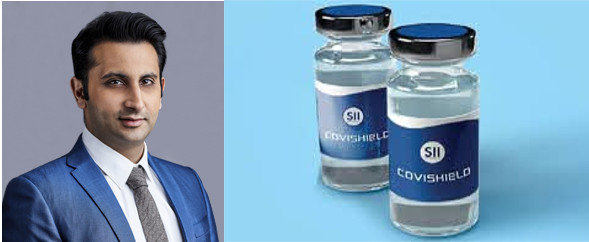Vaccine against COVID-19: After Pfizer, Serum Institute applies for Emergency Use approval in India
Pune-based Serum Institute of India (SII), the world's largest vaccine maker, has sought government approval for emergency use authorisation of the coronavirus vaccine. The SII is the second to do so after American firm Pfizer sought approval from the drug regulator - Drugs Controller General of India ( DCGI ). On December 04, Pfizer India had become the first pharma firm to seek an emergency use authorisation from the DCGI for its Covid vaccine in India after its parent company secured such approval in the UK and Bahrain. The SII is developing the vaccine –COVISHIELD - with the University of Oxford and British drugmaker AstraZeneca.

In its application on December 4, Pfizer India had asked the drug regulator for nod to import the vaccine for sale and distribution in India besides waiver of clinical trials on Indian population as per the special provisions under the New Drugs and Clinical Trials Rules, 2019.
"As promised, before the end of 2020, @SerumInstIndia has applied for emergency use authorisation for the first made-in-India vaccine, COVISHIELD. This will save countless lives, and I thank the Government of India and Sri @narendramodi ji for their invaluable support," tweeted Adar Poonawala, CEO , SII . He had said last month the SII will ask for approval in two weeks.
The phase-three clinical trial of COVISHIELD, co-sponsored by Indian Council of Medical Research (ICMR), is being conducted in various parts of the country in addition to clinical studies being carried out by Oxford-AstraZeneca in the UK and Brazil. The Institute has shared interim data with the DCGI of four clinical trials - one in India, two trials in UK and one in Brazil, according to media reports.
The government last week said it had found no reason to stop the Oxford vaccine trials in India after reviewing a Chennai volunteer's allegation of serious adverse effects, including memory loss and change in behaviour. The SII also clarified thatthe vaccine was "safe and immunogenic" and the Data and Safety Monitoring Board and the Ethics Committee had "independently cleared" the trials after examining the complaint.
Last month, AstraZeneca had said an interim analysis of clinical trials of its COVID-19 vaccine in the UK and Brazil showed that it was 70 per cent effective on average, becoming the third drugmaker after US firms - Moderna and Pfizer - to announce promising results to contain the deadly virus, which has affected over 96 lakh people in India and over 6.6 crore people across the world.
The company had also said that the vaccine showed 90 per cent efficacy in one dosing regimen when the vaccine was given as a half dose, followed by a full dose at least a month later, while another dosing regimen showed 62 per cent efficacy when given as two full doses at least one month apart.
Covishield has drawn an immune response even in the elderly, who are among the groups vulnerable to the disease, Adar Poonawalla reportedly said.
According to the company, the first batch of 100 million doses should be available by the second or third quarter of 2021.
